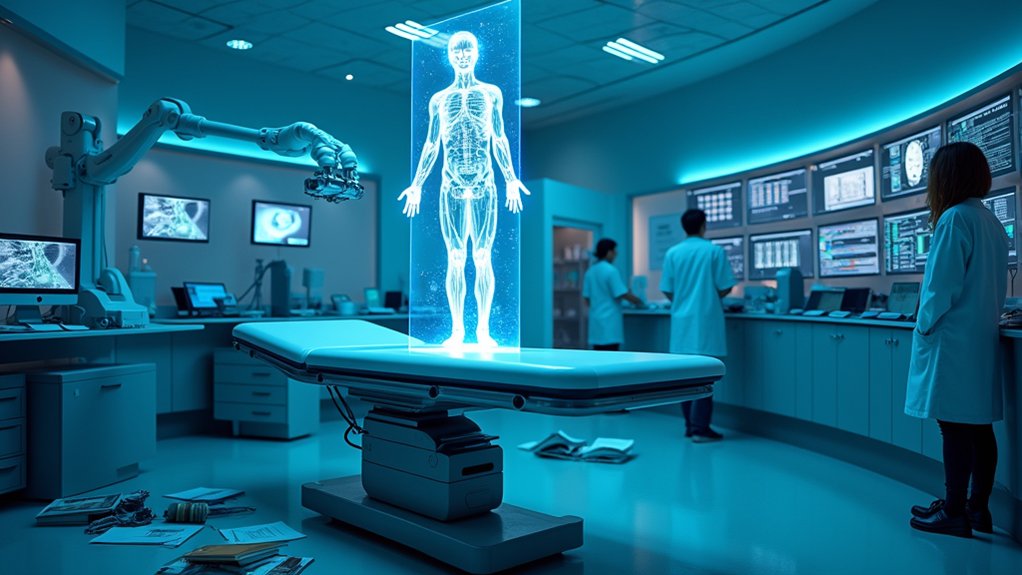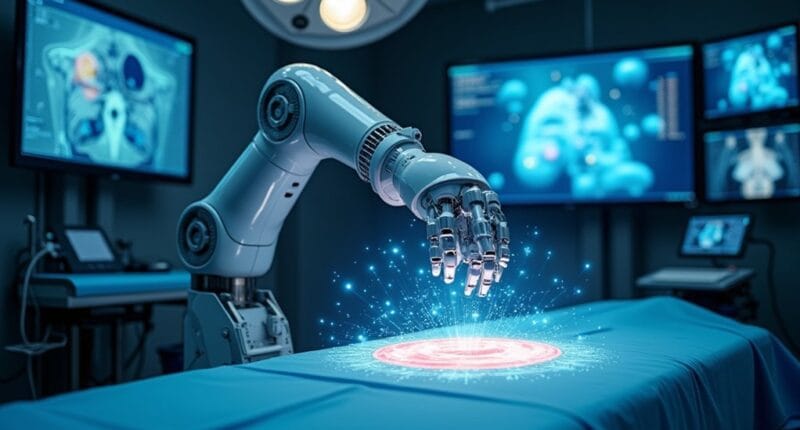AI is revolutionizing medicine while medical schools play catch-up. Machine learning systems now detect cancer with 97% accuracy, outperforming human doctors by 16%. Virtual nurses work 24/7, robotic surgeons never get tired, and drug development time has shrunk from seven years to under two. Traditional medicine is becoming obsolete as AI transforms healthcare through precision diagnostics, personalized treatments, and predictive analytics. The future of medicine isn’t waiting for textbooks to be updated.

Every corner of medicine is getting a major AI makeover, and it’s happening fast. While doctors spend years memorizing textbooks, artificial intelligence is revolutionizing healthcare at a dizzying pace. AI-powered diagnostic tools are now detecting lung cancer with 97% accuracy and spotting diabetic retinopathy before humans can. That’s right – machines are outperforming seasoned radiologists at analyzing chest X-rays and finding fractures. Studies show that large language models now surpass individual physicians in diagnosis accuracy by 16 percentage points.
AI isn’t just changing medicine – it’s completely redefining it, outperforming human doctors in ways we never imagined possible.
The future of drug discovery looks drastically different too. Traditional pharmaceutical development used to take seven excruciating years. Now, AI is shrinking that timeline to under two years. These systems are designing new molecules and predicting how drugs will interact with the body, while simultaneously matching patients to clinical trials. It’s like having thousands of researchers working around the clock, minus the coffee breaks. The rapid development of COVID-19 treatments demonstrated how AI expedites development of life-saving medications.
Virtual nursing assistants never sleep, never complain, and never miss a crucial sign. They’re monitoring chronic conditions, sending medication reminders, and flagging at-risk patients 24/7. These digital nurses are even preventing unnecessary ER visits – because nobody wants to sit in a waiting room for hours just to be told it’s only a cold.
In operating rooms, AI-assisted robots are performing surgeries with microscopic precision. These mechanical surgeons don’t get tired, their hands don’t shake, and they’re collecting data to improve future procedures. They’re even running simulations to train human surgeons on rare cases. Talk about learning from experience without the whole “oops” factor.
Predictive analytics is taking healthcare from reactive to proactive. By analyzing everything from lab results to genomics, AI can forecast disease risks and hospital demands before they become crises. It’s creating personalized treatment plans that consider a patient’s genetic makeup, lifestyle, and even their smartwatch data. The days of one-size-fits-all medicine are numbered.
Let’s face it – while medical schools are still teaching tomorrow’s doctors how to use stethoscopes, AI is rewriting the entire playbook of modern medicine. And it’s not slowing down for anyone to catch up.





